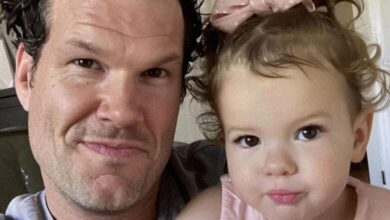
Legendary zoologist Jane Goodall cause of death revealed!
The world has lost one of its most extraordinary voices for animals and the planet. Jane Goodall, the trailblazing primatologist, ethologist, and tireless advocate for wildlife conservation, passed away on October 1, 2025, at the age of 91. The Jane Goodall Institute confirmed that she died of natural causes while on a speaking tour in California, a fitting reflection of her lifelong mission to inspire action for the Earth until her very last days.
Goodall’s passing has prompted an outpouring of tributes across the globe. From fellow scientists to world leaders, from environmental activists to ordinary people who had been moved by her words, her death has been marked as the end of an era—but also the continuation of a legacy that reshaped how humanity understands its relationship with the natural world.
The Beginning of a Remarkable Journey
Jane Goodall’s story is as legendary as her discoveries. In 1960, at just 26 years old, she traveled from her home in England to the forests of Gombe Stream in what is now Tanzania. At the time, it was virtually unheard of for a young woman without a university degree to embark on such a scientific expedition, especially into a male-dominated field like primatology. Yet Goodall’s determination, curiosity, and patience would prove groundbreaking.
She immersed herself in the lives of wild chimpanzees, observing them not as mere subjects but as individuals with personalities, emotions, and intelligence. Her early work revealed that chimpanzees used tools—sticks stripped of leaves to “fish” termites from mounds—an observation that shook the scientific world. Until then, tool use had been considered a defining trait of humanity. “We must now redefine man, redefine tool, or accept chimpanzees as human,” one anthropologist famously remarked after her findings were published.
Goodall’s practice of naming the chimpanzees—rather than assigning them numbers, as was then standard—was equally revolutionary. She documented their friendships, rivalries, tenderness, and grief, narrowing the gap between humans and other animals in a way that was both scientific and deeply humane.
Building a Global Legacy
Her research led her to Cambridge University, where she earned a Ph.D. in ethology, one of the few people at the time to do so without an undergraduate degree. But Goodall’s influence extended far beyond academia. In 1977, she founded the Jane Goodall Institute, dedicated to research, conservation, and education. Over the decades, it grew into a global network that not only advanced chimpanzee protection but also connected with communities worldwide to promote sustainable coexistence between humans and nature.
Perhaps one of her proudest achievements was Roots & Shoots, a youth-focused program she launched in 1991. Its mission was simple but profound: to empower young people to create positive change for animals, people, and the environment. Today, Roots & Shoots operates in more than 60 countries, inspiring hundreds of thousands of young activists.
A Tireless Advocate in Her Final Years
Even in her nineties, Goodall refused to slow down. She traveled extensively, speaking at conferences, universities, and public gatherings. She believed in the power of storytelling to move hearts and minds, and she never missed an opportunity to remind audiences of their role in protecting the Earth.
Her final days were emblematic of her life. She was in California on a speaking tour, continuing her mission of spreading awareness and hope. The Jane Goodall Institute’s statement emphasized her lifelong urgency to act: “Jane never stopped believing in the possibility of change. She never stopped working to protect the natural world and to empower the next generation to build a better future.”
Tributes From Around the World
Among the many tributes, one of the most heartfelt came from actor and environmental activist Leonardo DiCaprio. Like Goodall, DiCaprio had served as a United Nations Messenger of Peace, and the two had collaborated on environmental projects. On Instagram, DiCaprio praised her as “my hero” and urged his followers to honor her memory by supporting the Jane Goodall Institute.
“Jane Goodall devoted her life to protecting our planet and giving a voice to the wild animals and the ecosystems they inhabit,” DiCaprio wrote. “Her groundbreaking research on chimpanzees in Tanzania transformed our understanding of how our closest relatives live, socialize, and think. She inspired millions to care, to act, and to hope.”
The two recently worked together on Howl, a forthcoming live-action film that tells a survival story from the perspectives of a dog and a wolf. Goodall believed that storytelling could open hearts to empathy for animals, and this project exemplified that vision.
Scientific and Cultural Impact
News outlets and conservation groups have reflected on the seismic impact of Goodall’s work. Her first reports of chimpanzee tool use rewrote textbooks and expanded humanity’s understanding of intelligence and culture in the animal kingdom. By documenting the emotional and social lives of chimpanzees, she helped dismantle the rigid divide that had long separated humans from the rest of the animal world in the public imagination.
Goodall also became a cultural icon. Her appearances in documentaries, interviews, and books brought her work to millions who might never have opened a scientific journal. She authored more than 20 books, ranging from scientific texts to memoirs and children’s literature. Films such as Jane (2017) and The Hope (2020) offered intimate portraits of her life and mission, further cementing her role as both a scientist and a symbol of hope.
The Human Side of a Legend
Despite her fame, Goodall was known for her humility and warmth. She often spoke candidly about her own challenges, including living with prosopagnosia (face blindness), which made it difficult for her to recognize people she had met before. Still, she connected deeply with others through her words and actions.
She is survived by her son, Hugo Eric Louis van Lawick, from her marriage to Dutch wildlife photographer Hugo van Lawick, as well as three grandchildren. Family was always a grounding force for Goodall, even as her work took her across the globe.
The Enduring Message of Hope
Perhaps the most powerful aspect of Jane Goodall’s legacy is the optimism she carried. While she never shied away from acknowledging the urgent crises facing the planet—climate change, habitat destruction, species extinction—she consistently urged people to act with hope rather than despair. “Every individual matters. Every individual has a role to play. Every individual makes a difference,” she often said, words that have become a guiding mantra for generations of environmental activists.
Her passing may mark the end of her remarkable personal journey, but her message continues. The work of the Jane Goodall Institute, Roots & Shoots, and countless other initiatives she inspired will carry forward. And for those who heard her speak, read her books, or simply saw her dedication, her legacy remains not only in the history of science but in the hearts of millions.
Conclusion
Jane Goodall’s death at 91 closes a chapter on one of the most remarkable lives of the 20th and 21st centuries. From her first steps into the forests of Gombe to her final days on the lecture circuit, she dedicated herself to understanding, protecting, and advocating for the natural world. She changed science, inspired activism, and reminded humanity of its responsibility to the planet.
The world may mourn her loss, but it also celebrates the gift of her life. Her legacy will not fade, because she planted it in the minds and hearts of those who believe, as she did, that there is always hope if we are willing to act.




